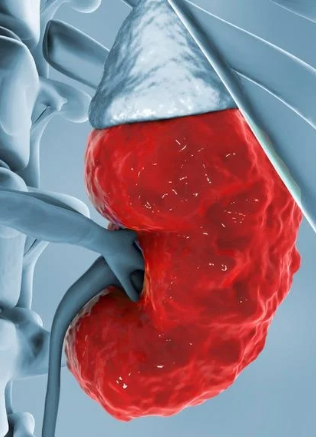Introduction
In this introduction, we will briefly address the central theme of the article and highlight the importance of kidney health in our lives. Kidney health is essential for the proper functioning of our body, and a kidney specialist is the trained professional to diagnose and treat possible kidney problems.
The importance of kidney health
Kidneys are vital organs that perform a number of essential functions in the human body. They are responsible for filtering the blood, removing toxins and waste, regulating blood pressure and electrolyte balance, and producing hormones that aid in the production of red blood cells and the maintenance of bone health.
Given its importance, kidney health is crucial to overall well-being. Kidney problems can lead to a number of complications such as kidney failure, hypertension and cardiovascular disease. Therefore, it is essential to take care of kidney health and seek guidance from a kidney specialist whenever necessary.
The role of the kidney specialist
A kidney specialist, such as a urologist or nephrologist, is a doctor who specializes in the diagnosis, treatment, and prevention of kidney disease. These professionals have in-depth knowledge of the anatomy and physiology of the kidneys, as well as the diseases and conditions that can affect them.
When consulting a kidney specialist, the patient can expect a complete assessment of kidney health, including physical exams and laboratory tests such as blood and urine tests. Based on the results of these tests, your doctor can recommend an appropriate treatment plan to address any identified kidney problems.
The relevance of prevention and early detection
Prevention and early detection of kidney problems are key to maintaining healthy kidneys. Adopting healthy habits, such as maintaining a balanced diet, drinking adequate water, practicing regular physical activity and controlling chronic diseases such as diabetes and hypertension, can significantly reduce the risk of developing kidney disease.
In addition, periodic medical examinations are essential to identify possible kidney problems in the early stages. When diagnosed early, many kidney diseases can be treated effectively, avoiding more serious complications and improving the patient’s quality of life.
In this article, we’ll explore in detail the main functions of the kidneys, the most common kidney diseases, the symptoms and diagnoses associated with these conditions, and the treatments available to address them.
In addition, we will discuss when to seek advice from a kidney specialist and how to prevent kidney problems through healthy habits and regular medical follow-up. With this knowledge, you will be better prepared to take care of your kidney health and live a healthier and more balanced life.
What to expect from this article
Throughout this article, you will find valuable information about kidney health and the role of the kidney specialist in the care and treatment of the kidneys. In the next subheadings, we will cover the following topics:
- The function of the kidneys in the human body: In this section, we will detail the role of the kidneys and how they contribute to the proper functioning of our body.
- Major Kidney Diseases: We will discuss the most common kidney diseases, their symptoms, causes, and associated risk factors.
- Symptoms and Diagnosis of Kidney Diseases: Here, we will explore the main symptoms of kidney diseases and the tests and tests used to diagnose them.
- Treatments and prevention: In this part, we will describe the treatments available for kidney disease and the importance of prevention and healthy habits to maintain kidney health.
- When to see a kidney specialist: Finally, we will explain in what situations it is important to seek help from a kidney specialist doctor, such as a urologist or nephrologist.
Throughout the text, we will include information based on scientific research and current medical practices in order to provide quality and relevant content for our readers.
We hope this article helps you better understand the importance of kidney health and the critical role of the kidney specialist in the care and treatment of kidney disease. If you have questions or concerns about the health of your kidneys, please do not hesitate to seek the advice of a qualified medical professional such as Dr. Petronio Melo.
The function of the kidneys in the human body
In this section, we will discuss the main functions of the kidneys and how they contribute to maintaining our body’s health. Among its functions, blood filtration, blood pressure regulation, electrolyte balance and hormone production stand out.
Blood filtration and waste disposal
One of the primary functions of the kidneys is to filter the blood, removing toxins, metabolic waste and excess fluid from the body. This filtration takes place in the functional units of the kidneys called the nephronns, which are composed of glomeruli and renal tubules. Blood is filtered through the glomeruli, allowing water, mineral salts and small molecules to pass into the renal tubules, where the reabsorption of useful substances takes place. Excess waste and liquids are then excreted in the form of urine.
Blood pressure regulation
The kidneys play a key role in regulating blood pressure, primarily through the renin-angiotensin-aldosterone system (RAAS). When blood pressure is low or blood volume is reduced, the kidneys release the enzyme renin, which activates the production of angiotensin II, a potent vasoconstrictor. Angiotensin II, in turn, stimulates the release of aldosterone by the adrenals, increasing the reabsorption of sodium and water by the kidneys. This process results in increased blood volume and blood pressure.
Electrolyte balance
The balance of electrolytes in the body is essential for the maintenance of several biological functions, such as muscle contraction and the transmission of nerve impulses. The kidneys regulate electrolyte levels, such as sodium, potassium, calcium and phosphate, by filtering, reabsorbing and excreting these substances. In this way, the kidneys ensure that the concentration of these electrolytes in the blood remains within normal limits.
Hormone production
The kidneys are also responsible for the production and release of hormones that perform different functions in the body. Among the hormones produced by the kidneys are:
- Erythropoietin (EPO): Stimulates the production of red blood cells in the bone marrow, increasing the blood’s ability to carry oxygen.
- Renin: As mentioned earlier, renin is released by the kidneys in response to low blood pressure and activates the renin-angiotensin-aldosterone system.
- Calcitriol (active form of vitamin D): contributes to the absorption of calcium in the intestine and regulates calcium and phosphate metabolism, helping to maintain bone health and mineral balance.
Maintenance of acid-base balance
Another important function of the kidneys is to maintain the body’s acid-base balance. In order for chemical reactions to occur efficiently and enzymes to act correctly, it is necessary to maintain the pH of the blood within a narrow range (between 7.35 and 7.45). The kidneys contribute to this balance by excreting hydrogen ions and reabsorbing bicarbonate (HCO3-) as needed to regulate the acidity or alkalinity of the blood.
In summary, the kidneys perform several vital functions for the human body, such as filtering blood, regulating blood pressure, balancing electrolytes, producing hormones, and maintaining acid-base balance. These functions are crucial for maintaining overall health and for the proper functioning of other systems in the body. Therefore, it is essential to take care of the health of the kidneys and seek the advice of a kidney specialist when necessary, to ensure that these vital organs continue to function properly.
Main kidney diseases
In this section, we’ll discuss some of the more common kidney diseases, including chronic kidney disease, kidney stones, infections, and kidney disease. These conditions can affect kidney function and, if not properly treated, lead to serious complications and impact the patient’s quality of life.
Chronic kidney disease (CKD)
Chronic kidney disease is a condition characterized by progressive and irreversible loss of kidney function over time. CKD is generally classified into five stages, depending on the glomerular filtration rate (GFR), which measures the efficiency of the kidneys in filtering the blood. The main causes of CKD include diabetes, hypertension, glomerulonephritis and cystic kidney disease.
CKD symptoms can be non-specific and usually appear in more advanced stages of the disease. They include fatigue, bloating, nausea, loss of appetite, changes in urination, and muscle cramps. CKD treatment involves controlling the underlying causes and adopting measures to slow the progression of the disease, such as controlling blood pressure and modifying the diet.
Kidney stones
Kidney stones, also known as kidney stones, are solid crystal formations that develop in the kidneys or urinary tract. They are caused by the precipitation of substances present in the urine, such as calcium, oxalate, phosphate and uric acid. Risk factors for developing kidney stones include dehydration, a diet high in protein, salt and sugar, obesity and family history.
Symptoms of kidney stones vary depending on the size and location of the stones and can include severe lower back pain, painful urination, blood in the urine, nausea and vomiting. Treatment of kidney stones depends on the size and location of the stones and may include increasing fluid intake, pain relief medications, using medications to ease the passage of stones and, in some cases, surgical procedures or extracorporeal shock wave lithotripsy (ESWL).
Kidney infections
Kidney infections, also called pyelonephritis, are inflammation of the kidneys caused by bacteria, usually Escherichia coli, that ascend from the lower urinary tract. Risk factors for kidney infections include urinary tract obstruction, use of catheters, pregnancy, and vesicoureteral reflux.
Symptoms of a kidney infection can include lower back pain, fever, chills, nausea, vomiting, and changes in urination such as increased frequency and urgency to urinate, painful urination, and bad-smelling urine. Treatment for kidney infections usually involves the use of antibiotics, pain relievers and increased fluid intake. In more severe cases, hospitalization may be required for intravenous antibiotics and patient monitoring.
Nephropathies
Nephropathies are kidney diseases that affect the glomeruli or renal tubules and can have many causes, such as autoimmune diseases, infections, toxins and medications. Some of the most common kidney diseases include:
- Glomerulonephritis: An inflammation of the glomeruli, usually caused by an abnormal immune response, infections, or systemic diseases such as lupus. Symptoms may include edema, hypertension, hematuria (blood in the urine) and proteinuria (protein in the urine). Treatment depends on the underlying cause and may include anti-inflammatory drugs, immunosuppressants, and measures to control blood pressure and protect kidney function.
- Interstitial Nephritis: An inflammation of the interstitial kidney tissue, usually caused by medications, infections, or autoimmune diseases. Symptoms include decreased kidney function, changes in urination, fever and skin rash. Treatment involves identifying and removing the underlying cause and, in some cases, using corticosteroids or anti-inflammatory medications.
- Diabetic nephropathy: A common complication of diabetes characterized by damage to the glomeruli due to excess blood sugar. Symptoms include proteinuria, edema, and hypertension. Treatment focuses on controlling diabetes, lowering blood pressure, and protecting kidney function with specific medications.
In summary, there are a number of common kidney diseases that can affect kidney function and lead to serious complications if not treated properly. Early identification and effective treatment of these conditions are critical to preserving kidney health and preventing progression to chronic kidney disease or kidney failure. Consulting a kidney specialist, such as a urologist or nephrologist, is essential to ensure an accurate diagnosis and appropriate treatment.
Symptoms and diagnosis of kidney disease
In this section, we’ll cover the common symptoms of kidney disease and the tests and tests used to diagnose them. Identifying the signs of kidney problems and making a correct diagnosis are key steps to ensure proper treatment and preservation of kidney function.
Common symptoms of kidney disease
The symptoms of kidney diseases can vary depending on the specific condition and the stage of the disease. Some common symptoms include:
- Changes in urination: increased or decreased frequency and volume of urine, urgency to urinate, difficulty initiating urination, and urinary incontinence.
- Pain: lower back pain, abdominal pain or painful urination.
- Hematuria: presence of blood in the urine, which can be visible to the naked eye or detected only through laboratory tests.
- Proteinuria: presence of protein in the urine, indicating possible kidney damage.
- Edema: Swelling in the feet, ankles, legs, hands or face due to fluid accumulation.
- Hypertension: high blood pressure, which can be a symptom or cause of kidney disease.
- Fatigue: Persistent tiredness and weakness caused by anemia or reduced kidney function.
- Nausea and vomiting: due to accumulation of toxins in the blood.
- Loss of appetite and weight loss: result of toxin buildup and changes in taste.
- Muscle cramps and spasms: caused by an imbalance of electrolytes such as potassium and calcium.
Exams and tests for the diagnosis of kidney diseases
The tests and tests used to diagnose kidney disease include a combination of clinical evaluation, laboratory tests, imaging, and in some cases, a kidney biopsy. Some of the main diagnostic tools are:
- Urinalysis: Laboratory evaluation of urine to identify the presence of blood, protein, glucose, and other abnormal elements, and to check urine density and pH.
- Blood tests: measurement of serum creatinine and urea, which are indicators of kidney function, and calculation of the glomerular filtration rate (GFR) to determine the stage of kidney disease. They may also include tests to assess the balance of electrolytes and other blood components, such as a complete blood count and liver function tests.
- Kidney ultrasound: non-invasive imaging test that allows visualization of the kidneys and urinary tract, identifying possible abnormalities such as kidney stones, obstructions, masses or changes in the size and shape of the kidneys.
- Computed tomography (CT) or magnetic resonance imaging (MRI): more detailed imaging tests that can be used to assess kidney structure and identify more specific abnormalities, such as tumors, cysts or vascular malformations.
- Kidney scintigraphy: a test that uses radioactive materials to assess kidney function and blood flow in the kidneys, helping to identify areas with reduced blood flow, obstructions or kidney damage.
- Excretory urography: An imaging test that uses contrast to visualize the urinary tract and detect obstructions, stones, tumors, or other abnormalities.
- Renal biopsy: procedure in which a sample of renal tissue is collected with a needle for microscopic analysis, allowing the identification of specific diseases, such as glomerulonephritis or nephropathy.
When identifying symptoms suggestive of kidney disease, it is crucial to consult a kidney specialist, such as a urologist or nephrologist, to perform the appropriate tests and examinations. An accurate diagnosis is key to determining the underlying cause of kidney disease and establishing an effective treatment plan, reducing the risk of complications and improving the patient’s quality of life.
Treatments and prevention
In this section, we will discuss the treatments available for kidney disease and the importance of prevention and healthy habits in maintaining kidney health.
Treatments for kidney diseases
The treatment of kidney diseases varies according to the specific condition, the severity of the disease and the presence of other complications. Some of the treatment options include:
- Medication: The use of medication is a common approach to treating kidney disease. Depending on the condition, medications may be prescribed to control blood pressure, reduce inflammation, control blood sugar levels, relieve pain, or fight infections.
- Therapies: in some cases, specific therapies may be recommended, such as physiotherapy, nutritional therapy or psychotherapy, to address aspects related to kidney disease and improve the patient’s quality of life.
- Dialysis: Dialysis is a treatment that partially replaces kidney function in cases of acute or chronic kidney failure. There are two main types of dialysis: hemodialysis and peritoneal dialysis. Both techniques help eliminate toxins and excess fluids from the body, but differ in the way they are performed and in their practical implications.
- Kidney transplant: in cases of advanced chronic kidney failure, when dialysis is no longer effective, a kidney transplant may be indicated. This procedure involves replacing the diseased kidney with a healthy kidney from a donor, either living or deceased.
Prevention and healthy habits
Maintaining kidney health is critical to preventing the development or progression of kidney disease. Some preventive measures and healthy habits include:
- Blood Pressure Control: Hypertension is one of the main causes of kidney disease. Keeping blood pressure within healthy limits is essential for protecting kidney function. This can be achieved through a balanced diet, regular physical activity, stress control and, if necessary, the use of medication prescribed by the doctor.
- Controlling Diabetes: Diabetes is another common cause of kidney disease. Keeping blood sugar levels in check is crucial to preventing diabetic kidney disease and other diabetes-related complications.
- Maintaining a healthy weight: Obesity can increase your risk of kidney disease and other conditions, such as high blood pressure and diabetes. Losing weight, if necessary, and maintaining a healthy weight can help protect kidney function.
- Balanced diet: A diet rich in fruits, vegetables, whole grains, lean proteins and healthy fats can help prevent kidney disease. Limiting your intake of sodium, sugar, and saturated fats is also important for maintaining kidney health.
- Adequate Hydration: Drinking an adequate amount of water is critical to helping the kidneys filter out toxins and maintain electrolyte balance in the body. The amount of water needed varies according to age, sex, climate and physical activity, but in general it is recommended to drink at least 2 liters of water a day.
- Avoid medication overuse: Prolonged or excessive use of medications, such as nonsteroidal anti-inflammatory drugs (NSAIDs), can impair kidney function. Always use medications as prescribed by your doctor and inform your doctor of any concerns regarding side effects or drug interactions.
- No smoking: Smoking increases the risk of kidney disease, as well as other conditions such as cardiovascular disease and cancer. Quitting smoking is an important step in protecting kidney health and improving overall health.
- Moderate alcohol consumption: Excessive alcohol consumption can contribute to kidney disease and other health complications. Limiting alcohol consumption and drinking in moderation is an important strategy in preventing kidney problems.
- Regular checkups: Having regular medical checkups, including blood and urine tests, can help identify possible signs of kidney disease early and ensure proper treatment if needed.
Adopting these preventive practices and maintaining healthy habits can be key to protecting kidney function and preventing the development or progression of kidney disease. Additionally, it is important to remember that follow-up with a kidney specialist, such as a urologist or nephrologist, is essential to ensure kidney health and overall well-being.
When to See a Kidney Specialist
In this section, we’ll discuss situations where it’s important to seek help from a doctor who specializes in the kidney, such as a urologist or nephrologist.
Symptoms and warning signs
If you have symptoms or signs suggestive of kidney disease, it is essential to see a kidney specialist for a proper evaluation. Some of these symptoms include:
- Swelling in the legs, ankles or feet caused by fluid retention.
- Urine changes, such as foam, blood, or change in frequency or volume.
- Pain in the lower back, which may be indicative of kidney stones or other kidney conditions.
- High blood pressure, especially if difficult to control with medication.
- Chronic fatigue and weakness, which can be caused by anemia related to kidney disease.
- Nausea, vomiting or loss of appetite, which may be associated with kidney failure.
- Intense and persistent itching, which can be a sign of a buildup of toxins in the blood.
Risk factors and preexisting conditions
If you have risk factors or pre-existing conditions that make you more likely to develop kidney disease, it is advisable to consult a kidney specialist. These factors include:
- Diabetes: Diabetes is one of the leading causes of chronic kidney disease. People with diabetes should be followed up by a nephrologist to monitor kidney function and prevent complications.
- Hypertension: High blood pressure is another major risk factor for kidney disease. Regular follow-up with a kidney specialist can help control blood pressure and protect kidney function.
- Family history: If you have a family history of kidney disease, such as polycystic kidney disease or glomerulonephritis, it is important to follow up with a kidney specialist to monitor kidney function and detect any problems early.
- Obesity: Obesity is a risk factor for kidney disease and other conditions such as diabetes and high blood pressure. Overweight people should seek a kidney specialist doctor to assess kidney function and receive guidance on weight loss and healthy habits.
- Autoimmune diseases: Some autoimmune diseases, such as lupus or vasculitis, can affect kidney function. If you have an autoimmune disease, it’s important to see a kidney specialist regularly to monitor your kidney health and treat any complications.
Regular checkups and medical follow-up
Regardless of the presence of specific symptoms or risk factors, it is important to have regular medical tests, including blood and urine tests, to monitor kidney function and detect any problems early. A kidney specialist can guide the frequency of these tests and the need for other specific tests, based on your condition and medical history.
Prevention and treatment
In addition to identifying and treating kidney disease, a kidney specialist can also help prevent these conditions by providing guidance on healthy habits and preventative measures. This includes advice on diet, hydration, weight and blood pressure control, and appropriate medication use.
Conclusion
In this conclusion, we will summarize the importance of kidney health and follow-up with a kidney specialist such as a urologist or nephrologist.
The importance of kidney health
Kidney health is critical to the proper functioning of our bodies, as the kidneys play a vital role in filtering blood, regulating blood pressure, balancing electrolytes and producing hormones. Kidney diseases, such as chronic kidney disease, kidney stones, infections and nephropathy, can negatively affect quality of life and lead to serious complications, such as kidney failure and cardiovascular disease.
The importance of follow-up with a kidney specialist
Follow-up with a kidney specialist is crucial to preventing, identifying and treating kidney disease. A urologist or not
ephrologist can provide a comprehensive assessment of kidney health, advise on necessary care, and recommend appropriate treatments and preventive measures. Early diagnosis and treatment of kidney disease can significantly improve outcomes and prevent complications such as kidney failure and the need for dialysis or a kidney transplant.
Kidney health care and prevention
Maintaining kidney health involves adopting healthy habits and preventive measures, such as a balanced diet, weight and blood pressure control, adequate hydration and regular medical examinations. In addition, it is essential to seek a kidney specialist whenever you have symptoms suggestive of kidney disease or have risk factors and preexisting conditions that increase the likelihood of developing kidney problems.
In summary, kidney health is of utmost importance to our quality of life and overall well-being. Follow-up with a kidney specialist, such as a urologist or nephrologist, is critical to ensure early detection and effective treatment of kidney disease, as well as preventing complications and maintaining kidney health. Adopting healthy habits and preventive measures, in addition to seeking specialized medical advice whenever necessary, can make all the difference in protecting and promoting the health of your kidneys.




